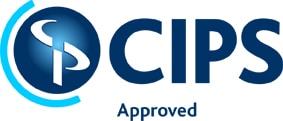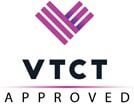At Solihull College & University Centre we are committed to fostering a safe and respectful environment for all students, staff, and visitors. In alignment with the Office for Students (OfS) Condition E6 on harassment and sexual misconduct (HSM), effective from , we have established comprehensive policies and procedures to prevent and address such behaviours within our community.
To comply with the OfS Condition E6, this webpage is the single comprehensive source of information detailing our policies and procedures related to harassment and sexual misconduct. This resource is designed to be accessible and transparent, ensuring that all members of our academic community (and potential future students) are informed about the steps we take to protect students and the processes in place for reporting and addressing incidents.
Scope
Our policies cover all incidents of harassment and sexual misconduct affecting students, including conduct by staff towards students and between students. These policies apply to all higher education courses provided by or on behalf of Solihull College & University Centre.
What is Harassment and Sexual Misconduct?
- Harassment: As defined under Section 26 of the Equality Act 2010 and Section 1 of the Protection from Harassment Act 1997, harassment includes unwanted conduct related to a relevant protected characteristic that violates a person’s dignity or creates an intimidating, hostile, degrading, humiliating, or offensive environment.
- Sexual Misconduct: Encompasses any unwanted or attempted unwanted conduct of a sexual nature, including but not limited to sexual harassment, sexual assault, and rape.
Preventative Measures
To significantly and credibly protect students from harassment and sexual misconduct, including the abuse of power, we have implemented multiple steps, including:
- Consultation with Students: We engaged with students and their representatives to ensure our policies are appropriate and effective.
- Data Collection and Publication: Through the National Student Survey’s Sexual Misconduct Survey, students shared their views on the prevalence and reporting of harassment and sexual misconduct to inform our strategies.
- Policy updating: Conducting a review of our policies and processes, making adjustments as necessary to enhance their effectiveness and ensuring compliance with Condition E6. Previous versions of policies can be viewed.
Reporting Harassment and Sexual Misconduct
We have established clear and accessible channels for reporting incidents of harassment and sexual misconduct, including:
- Online Reporting Option: Reports can be made by students online, on the college’s Safeguarding portal – with anonymous reporting available. This portal is used to disclose any concerns of bullying, harassment, discrimination, hate crimes and sexual misconduct. Staff should make reports through MyConcern.
- In person reporting: Students who do not wish to report online can report to any member of staff or directly to a member of the Safeguarding Team, to whom any disclosures are escalated. Please see the Flowchart for reporting processes; and full details are outlined in the Harassment and Sexual Misconduct Policy
- Barrier Removal: By being transparent about our policies and procedures, we hope to eliminate any actual or perceived barriers to reporting, ensuring that all students feel comfortable coming forward.
Support For Those Affected
We offer support for students affected by HSM, including:
- Counselling Services: Access to personal counselling for affected students, whether it is those who have experienced HSM, witnessed HSM or are the alleged perpetrator. Support is available face to face through the college’s counselling and mental health team — you can self-refer for counselling; and to the mental health support.
- Online support: Students have access to 24/7 online and telephone counselling support through Spectrum Life. Login details will be provided during your induction.
- Academic Support: Assistance to ensure that students’ academic experiences are not adversely affected.
- Students facing allegations: as indicated in the Harassment and Sexual Misconduct Policy, students facing allegations will be provided with a named staff member who they can contact for support
Investigation Process
Our investigation procedures are designed to be credible, fair, and reflective of established principles of natural justice.
Process and Decision-Making:
- The Harassment and Sexual Misconduct Policy defines what harassment and sexual misconduct are and sets out the University’s approach to preventing and addressing harassment and sexual misconduct.
- The Harassment and Sexual Misconduct Policy outlines how incidents will be investigated, whether it involves misconduct by a student, staff member, or third party.
- The Harassment and Sexual Misconduct Policy outlines expected timescales for investigations and decisions.
- The Harassment and Sexual Misconduct Policy outlines available mechanisms for appealing decisions.
Information Handling
- All information related to reports is handled sensitively and in compliance with data protection legislation. Ensuring confidentiality when making reports is key to creating a culture where students feel safe to make a disclosure about sexual misconduct or harassment. We ensure that students understand how their information will be used and maintain appropriate confidentiality throughout the process. Further details about confidentiality and information sharing are provided in the Harassment and Sexual Misconduct Policy.
Training and Awareness
We provide mandatory training for both staff and students to ensure understanding of our policies and the behaviours that constitute harassment and sexual misconduct. This includes:
- For Students: During induction, training on sexual consent, recognising what constitutes harassment and ways of reporting it.
- For Staff: All staff working at the college undergo regular safeguarding training. Those staff whose roles deal with the reporting and investigation process undergo further specialist training on handling disclosures, conducting investigations, and upholding principles of freedom of speech.
Intimate Personal Relationships
To protect students from potential conflicts of interest and abuse of power, we have implemented policies regarding intimate personal relationships between staff and students. There is a ban (with exceptions) on intimate relationships between staff and students. The exceptions are where there is an ongoing relationship that existed before ; and relationships that existed before the staff member became a relevant staff member to the student.
We will require all staff to disclose intimate personal relationships with students. This is outlined in our Code of Ethics and Conduct for Staff and Governors. This code includes steps deemed significant and credible in safeguarding student welfare and preventing an abuse of power.
Non-disclosure Agreements
Communication and Accessibility
Our comprehensive source of information is prominently published and easily accessible on our website. We commit to:
- Regular Communication: Informing staff and students about our policies at least once each calendar year.
- Inclusion in Key Documents: Featuring information about our policies in main documents such as prospectuses and handbooks.
- Version Transparency: Clearly indicating when content has changed and providing access to historical versions of policies.







































